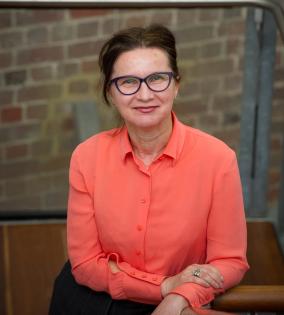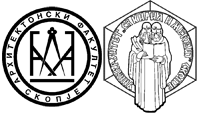


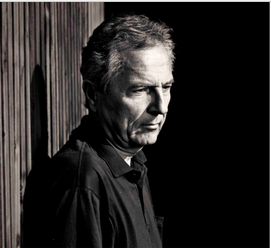
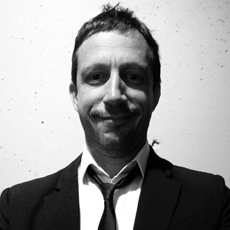
Dr. Dipl.-Ing (Arch) Antonio Petrov received his doctoral degree in the history and theory of architecture, urbanism and cultural studies from Harvard University. Currently, he is teaching at the University of Texas in San Antonio. He is also program director at Archeworks in Chicago, co-founder and current editor-in-chief of the Harvard GSD publication New Geographies, the founder and editor-in-chief of DOMA, a bilingual magazine published in Macedonia, and the director of WAS, a think tank located in Chicago.
Antonio’s research explores new discourses in regionalism and architecture with focus on the Mediterranean; he also investigates new spatial paradigms in evangelical architecture in the United States. Published by Harvard University Press in March 2013, New Geographies ‘the Mediterranean,’ supported with grants from the Graham Foundation for Advanced Studies in the Fine Arts and the Aga Khan program at the Harvard Graduate School of Design, spatializes the Mediterranean as a larger geographic entity and recovers the region as a critical spatial model for global interaction. His research seeks to reconceptualize active processes of region making by dismantling its prevailing geographic, spatial and cultural meanings. His perspective on the Mediterranean recasts the region as a contemporary phenomenon and spatializes its formation as a larger geographic entity challenging conventional boundaries between cities and hinterlands. In his forthcoming book, ‘Superordinary: New Paradigms in Scared Architecture’ Antonio traces evangelical architecture in the United States arguing that postwar American Protestantism not only overcame the traditional signification of sacred architecture, but also its dichotomy of form, function and aesthetics.
Before coming to the University of Texas, Antonio taught at Harvard University, Wentworth Institute of Technology, Northeastern University, Iowa State University, The School of the Art Institute of Chicago and the Illinois Institute of Technology. He is also a recipient of a Fulbright fellowship, and has received several other grants, fellowships, and won international prizes and competitions in architecture, planning and design.
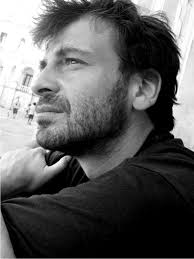
ALESSANDRO ARMANDO
Alessandro Armando, architect, is Assistant Professor at the Department of Architectural and Design (DAD) of the Politecnico di Torino since 2011. He teaches Architectural Design at the Bachelor Program, Design theory at the Master Program and at the PhD program in History of Architecture and Design (DASP), in the same Politecnico. He is one of the three International Exchange Program coordinators for DAD. He received his doctorate in architecture and building design in 2005 and since the same year he has been conducting research with a post-doc fellowship (2005-2006) and a research fellowship (2007). He also worked as ateaching assistant first (2001-2006) and as main contract lecturer after (2007-2011) in the Design Units at the Architecture courses of Politecnico. At present he is part of the Research Program of National Interest (PRIN) Re-Cycle, and in this role was one of the curators for the exhibition Watersheds at the last Shenzhen Biennale. He has been invited last June at the South China University of Technology in Guanzhou as a conference lecturer and as delegate of a research commission of the Politecnico di Torino.
Since 2005 he’s been working as a project consultant for the Urban Center Metropolitano (UCM) in Turin, dealing with the accompaniment of public processes and projects in the cities of the Turin Metropolitan area, but also dealing with urban design activities, public communication and information about the transformation of the cities. He was also involved in various international activities of UCM: as an expert involved in public projects at the German Marshal Fund conference “Transatlantic Cities Forum on Waterfront Development” (Genoa, 2010); as UCM coordinator of the Masterplan of the Southern Boulevard in Skopje (2011-2012); as a referent for the City of Torino in the EU program “Urban Development Policy Exchange between Japan and the EU” (Tokio and Kanazawa, 2012-2013).
He took part to international and national conferences about urban policies and design processes (Genoa, Rome, Milan, Siracusa, Salerno, Venice, Skopje, Kanazawa, Shenzhen, Guanzhou) besides the international congresses in Turin (“Ricominciando da Roberto Gabetti”, 2010, “Architettura e Realismo”, 2013, and the Third National ProArch Forum, where he was a session coordinator, 2013).
In his professional career as an architect, he deals mainly with renewal and restoration projects and urban design projects. Among his works, he designed with Manfredo N. Di Robilant the renewal of a 1808 private house in Cambridge MA (Boston) (2010-2012). This project was also published on various international reviews:
“Domus”
https://www.domusweb.it/en/architecture/2014/03/21/urban_house_withbigwindow.html
“Architectural Record”
http://archrecord.construction.com/residential/featured_houses/2014/Urban-House-With-Big-Window-Alessandro-Armando-And-Manfredo-Di-Robilant.asp
“Architect’s Newspaper”
http://blog.archpaper.com/wordpress/archives/82205
MAIN TEACHING AND RESEARCH APPOINTMENTS
• Assistant Professor of Architectural and Urban Design at the Department of Architecture and Urban Design, since December 2011.
• Lecturer of Architectural Design, Politecnico di Torino, 2007-2011.
• Teaching Assistant of Architectural Design, Politecnico di Torino, 2001-2006.
• Research Fellowship at the former Architectural Design Department, Politecnico di Torino, 2007.
• Post-doctoral Fellowship, Architectural and Urban Design, Politecnico di Torino,
2006-2007.
• PhD in Architecture and Building Design, Politecnico di Torino, 2005.
• Graduate Degree in Architecture, Politecnico di Torino, 2000.
Robilant the renewal of a 1808 private house in Cambridge MA (Boston) (2010-2012). This project was also published on various international reviews:
“Domus”
https://www.domusweb.it/en/architecture/2014/03/21/urban_house_withbigwindow.html
“Architectural Record”
http://archrecord.construction.com/residential/featured_houses/2014/Urban-House-With-Big-Window-Alessandro-Armando-And-Manfredo-Di-Robilant.asp
“Architect’s Newspaper”
http://blog.archpaper.com/wordpress/archives/82205
MAIN TEACHING AND RESEARCH APPOINTMENTS
• Assistant Professor of Architectural and Urban Design at the Department of Architecture and Urban Design, since December 2011.
• Lecturer of Architectural Design, Politecnico di Torino, 2007-2011.
• Teaching Assistant of Architectural Design, Politecnico di Torino, 2001-2006.
• Research Fellowship at the former Architectural Design Department, Politecnico di Torino, 2007.
• Post-doctoral Fellowship, Architectural and Urban Design, Politecnico di Torino,
2006-2007.
• PhD in Architecture and Building Design, Politecnico di Torino, 2005.
• Graduate Degree in Architecture, Politecnico di Torino, 2000.
RECENT PUBLICATIONS
Urban strategies for the future development of Turin and Skopje: economic crisis and effectiveness of urban design.
(with O. Marina, S. Velevski), proceedings of University American College Skopje 9th annual international academic conference on European integration, “The Europe of Tomorrow: Creative, Digital, Integrated), Skopje, Thursday 15 May 2014, (forthcoming 2014)
Autorialità/politica: il progetto degli effetti
(with M. Bonino, F. Frassoldati, M, Giusiano), in S. Marini, S. C. Roselli (ed.), Re-Cycle Op_positions II (Rome: Aracne, 2014)
pp. 147-153, ISBN: 9788854872400
Dagli scenari alle procedure: il progetto come disegno degli effetti
(with G. Durbiano), in S. Marini, V. Santangelo (ed.), Re-Cycle Italy 03. Viaggio in Italia (Rome: Aracne, 2013)
pp. 52-54, ISBN: 9788854862692
Il progetto come costruzione sociale e trasformazione fisica. Alcune tracce torinesi
in S. Malcovati , F. Visconti, M. Caja, R. Capozzi, G. Fusco (ed.), Architettura e Realismo, (S. Arcangelo di Romagna: Maggioli, 2013)
pp. 143-154, ISBN: 9788838762321
Urban Project as a Tool for Spatial Integration of Urban Knowledge and Sustainable Development in the Case of Southern Boulevard in City of Skopje,
(with O. Marina), Proceedings of EAAE/ISUF International Conference New Urban Configurations, Delft, October 2012 (forthcoming 2014)
Gran Torino: l’infrastrutturazione morfologica del territorio metropolitano
(with F. Camorali, A. De Rossi), in B. Secchi (ed.), On Mobility. infrastrutture per la mobilità e costruzione del territorio metropolitano: linee guida per un progetto integrato, (Venice: Marsilio, 2010)
pp. 56-71, ISBN: 978883179990
The values of others
(with G. Durbiano), in A. De Rossi (ed.), Grande Scala. Architecture Politic Form, (Barcelona-Trento: List Laboratorio Internazionale Editoriale, 2009)
pp. 27-58, ISBN: 9788895623290
Biography
Mirjana is Associate Head of School International and Senior Lecturer in the School of Architecture and the Built Environment at Deakin University. She has thirty years experience as architectural educator, including international appointments, with strong research and expertise in teaching architectural theory and architectural design.
Her most distinctive contribution to the discipline and to education is how architecture mediates identity and culture. Postcolonial Space(s) (Princeton Architectural Press, 1997) was a pioneering first book that introduced a new cultural framework for rethinking architecture. Mirjana’s essay on multiculturalism and the migrant house in this volume established her international reputation as a forefront scholar, and its radical subject became the theme of a subsequent key publication, Migrancy and Architecture (Routledge 2004). Mirjana’s essay in this latter publication redefines architecture from the perspective of at least two sites of migration. These publications are the result of ‘Other Connections,’ a pioneering group of international academics formed in 1993 at NUS that also developed four key international conferences. Mirjana is a founding member of this groups and convened Sites of Recovery, the international conference in Beirut. Journal articles in Journal of South East Asian Architecture, Space and Culture, Interstices, Architecture Theory Review, Fabrications have sustained this international reputation. New theories on aesthetic taste and how architecture/migration mediates human dignity are published in two 2014 chapters. She is invited as key note speaker to conferences, and has secured a book contract with Routledge on Ethno-Architecture and the Politics of Migration.
She has led curriculum reviews and acted as consultant for other schools, and received awards and commendations for teaching. Students that she has mentored have received nationally acclaimed awards and prizes in both design and theoretical research.
Mirjana’s work is driven by a focus on the creative ways that architecture mediates human dignity and identity. This has shaped her approach and role in design, architectural education and research. Mirjana has an international reputation in architectural theory with a major contribution to the theories on migration and architecture.
Prior to academic work, Mirjana worked as a design architect and gained awards for projects. This link to the profession continues through her role as Jury member for the AIA award system, and her role on the AIA Education Committee.
Mirjana’s leadership of the Cultural Ecology Research Group has built a strong cultural platform in the school research environment. In 2012 she secured funds for an International Cultural Ecology Symposium, with key note speaker Professor Marwan Ghandour from Iowa State University and Professor Darko Radovic from Keio University.
She is the editor of the publication, Cultural Ecology: New Approaches to Culture, Architecture and Ecology, Deakin University ISBN 978-0-9875039-0-9. CERG is developing the project ‘Transformative Regionalism: Mapping the Invisible City of Geelong,” proposes alternative methodology that includes participation of artists and community for regional city identity development. The combination of expertise in creative design work, education and research is key to innovative for community participation as developed in the project on Children’s Vision of the City.
Biography summary
Mirjana is Associate Head of School International and Senior Lecturer in the School of Architecture and the Built Environment at Deakin University. She has twenty years experience as architectural educator, including international appointments, with expertise in teaching architectural theory and architectural design.

Даниел Серафимовски
Предавач за архитектура Даниел Серафимовски, е роден во Данска, живеел во Венеција, Скопје, Единбург, сега живее и работи во Лондон од 1997 година.
Даниел Серафимовски, постдипломските студии ги завршил на Факултетот за Архитектура на Кралската Данска академија за уметност, архитектура, дизајн и конзервација (The Royal Danish Academy of Fine Arts, Schools of Architecture, Design and Conservation / School of Architecture) во Копенхаген во рамките на што 2 години студирал на Istituto Universitario d’Architettura во Венеција. Дипломирал на Архитектонскиот Универзитет (Edinburgh University’s Architecture Department) во Единбург. По завршувањето на постдипломските студии престојувал 1 година во Рим по покана на Данскиот институт за уметност и наука во Рим (Danish Institute of Art and Science in Rome).
Универзитетски предавач
Даниел Серафимовски е виш предавач (Senior Lecturer) на London Metropolitan University сегашен назив Sir John Cass Faculty of Art, Architecture and Design каде што предава од 2010 година како предавач за архитектонски дизајн на Diploma Unit (MA постдипломски студенти). Од 2002 до 2010 на истиот универзитет предавал Архитектонско проектирање на BA студенти и предмет Архитектонска историја, теорија и интерпретација, а за предметот Архитектура и филм (2004-2013) самостојно подготвувал програми.
Предавал архитектонски предмети, претежно Архитектонско проектирање и на други факултети во Велика Британија – Oxford Brooks, Оксфорд; University of Nottingham, Нотингхам, итн.
Тој беше предавач (Visting lecturer) во 2008 година на корејскиот Националниот универзитет за уметност и архитектура (Korean National University of the Arts) во Сеул, и од 2000 година бил покануван како предавач (Visting lecturer) на Кралската Данска академија за уметност и архитектура (Royal Danish Academy of Art in Copenhagen) во Копенхаген.
Работни ангажмани
Почетното работно искуство го стекнал во архитектонските студијата на Henning Larsen и Пол Игеман во Копенхаген. Потоа во Лондон работел за Claudio Silvestrin Architects ( 2000-02 ) и David Adjaye Associates (2001-03), како главен проект архитект.
Освен академските активности Даниел Серафимовски од 2002 година има основано сопствено архитектонско студио во Лондон.
Неколку линкови:



